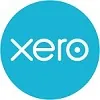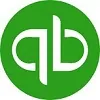Full Course
£110
£275Course Includes:
-
Online Study Mode
-
450 Hours
-
Study at your own Pace
-
Completion Certificate
Key Aspects of Course
-
Level 5 Diploma
-
Full Online Course
-
CPD Approved
-
Employer Approved
-
Fully Endorsed Course
-
450 Hours Training
-
No Entry Requirements
-
Boost Your Resume
-
Own Pace Study
-
Premium Course Material
-
Completion Certificate
£110
£275
Bookkeeping Course Online
The Bookkeeping Course QLS Level 5 is designed to provide learners with in-depth financial management skills and a solid understanding of modern bookkeeping practices. This comprehensive programme offers the flexibility of studying through a Bookkeeping Course Online, allowing learners to develop professional bookkeeping expertise from any location. By combining theoretical knowledge with practical application, the course supports individuals who wish to advance their careers in finance, administration, or business leadership.
As an advanced-level qualification, this programme also serves as an ideal Advanced Bookkeeping Course for those seeking to deepen their financial knowledge and strengthen their professional capabilities. Whether you are entering the field or building upon previous experience, the course delivers structured and accessible Bookkeeping Training Online, enabling learners to confidently handle financial records, prepare reports, and maintain compliance with industry standards.
- Advanced double-entry bookkeeping
- Maintaining ledgers and journals
- Bank reconciliation
- Payroll basics
- Use of bookkeeping software
- Financial statement preparation
- Accounts payable and receivable management
- Budgeting and variance analysis
- VAT concepts and calculations
- Ethical and regulatory awareness
this course
- Aspiring bookkeepers
- Finance assistants
- Accounts clerks
- Office administrators
- Small business owners
- Payroll assistants
- Entrepreneurs
- Students pursuing a career in finance
SYLLABUS
Module 1
Module 1
UK Bookkeeping Landscape, Ethics & Regulation
Module 2
Module 2
UK GAAP (FRS 102/105) & Core Accounting Concepts
Module 3
Module 3
Digital Bookkeeping Systems & MTD-Compliant Records
Module 4
Module 4
Sales, Purchases, Cash & Control Accounts
Module 5
Module 5
VAT in Practice (UK)
Module 6
Module 6
UK Payroll, RTI & Pensions Auto-Enrolment
Expected Bookkeeping market growth by the end of 2027
Increased in growth in different learning organizations
Average Salary
£22k - £46k per Annum
Hiring Companies
Certifications
Learner Stories
Frequently Asked Questions (FAQs)
Yes. All learning is delivered online, so you can complete your studies entirely from home—even if you're searching for Bookkeeping Courses Near Me.
No. Our courses are fully self-paced, allowing you to study whenever your schedule permits.
Yes. The published fee includes registration, tutor support, and all essential online study materials. Optional certificate upgrades are available separately.
Absolutely. A dedicated tutor will support you throughout your programme, offering feedback, clarification, and guidance.
Yes. Our online learning platform is accessible worldwide, making it easy for global learners to join.
Yes. Our introductory programmes explain the basics step-by-step, making them ideal for anyone starting their journey toward recognised Bookkeeping Qualifications.
Just an Internet-connected device. All materials are delivered digitally through the student portal.
Definitely. Our Online Bookkeeping Certificate Programs use structured modules, clear explanations, and simple MCQ-based assessments—supported by tutor guidance—to help you understand financial records, ledgers, and core accounting principles with ease.
A foundation-level certificate is best for newcomers. As you progress, advanced courses help strengthen skills for more complex bookkeeping tasks.
Yes. Completing a recognised programme can help you apply for roles in accounts support, administrative finance, small business bookkeeping, and related positions.
Full Course
£110
£275Course Includes:
-
Online Study Mode
-
450 Hours
-
Study at your own Pace
-
Completion Certificate
Key Aspects of Course
-
 Full Online Course
Full Online Course -
 CPD Approved
CPD Approved -
 Employer Approved
Employer Approved -
 Fully Endorsed Course
Fully Endorsed Course -
 No Entry Requirements
No Entry Requirements -
 Boost Your Resume
Boost Your Resume -
 Own Pace Study
Own Pace Study -
 Premium Course Material
Premium Course Material -
 Completion Certificate
Completion Certificate
£110
£275






